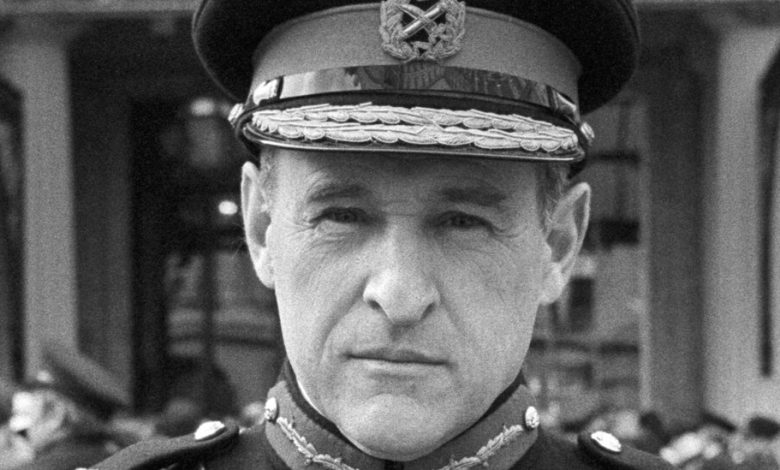Frank Kitson, 97, Dies; Helped Shape the Conflict in Northern Ireland

Gen. Frank Kitson arrived in Northern Ireland in September 1970, charged with leading a brigade of British paratroopers in Belfast. The 30-year struggle known as the Troubles, pitting loyalists, who wanted to stay part of Britain, against Republicans, who wanted to separate, was just beginning — and over the next two years, General Kitson would do much to shape the course of the conflict.
By then, General Kitson was considered one of Britain’s leading warrior-intellectuals. He had just come off a yearlong fellowship at Oxford, and he had used his time there to write a book, “Low Intensity Operations: Subversion, Insurgency and Peacekeeping” (1971), which drew on his decades of experience fighting colonial wars in Africa and Asia and has since come to be regarded as a classic text in the art of counterinsurgency.
General Kitson was short and stocky, with a ramrod posture and a high, nasal voice. He detested small talk and spoke rarely, but he had a martial charisma that won him widespread admiration among his ranks.
In his 2007 autobiography, “Soldier,” Gen. Mike Jackson, who at the time was a young officer in General Kitson’s brigade, called him “the sun around which the planets revolved,” adding that he “very much set the tone for the operational style.”
General Kitson drew on his experience overseas to change Britain’s approach to the Troubles. He set up an undercover unit, the Military Reaction Force, tasked with surveillance and occasional assassinations of Republican fighters. He fed slanted information to local reporters, and he supported the British Army’s campaign of interning thousands of suspects without charge.
On the morning of Jan. 30, 1972, some 10,000 unarmed Irish Republicans were holding a march throughthe city of Derry to protest internment. They were walking along the edge of a “no-go” area, where British soldiers were blocked from entering and risked armed attack if they did.
We are having trouble retrieving the article content.
Please enable JavaScript in your browser settings.
Thank you for your patience while we verify access. If you are in Reader mode please exit and log into your Times account, or subscribe for all of The Times.
Thank you for your patience while we verify access.
Already a subscriber? Log in.
Want all of The Times? Subscribe.